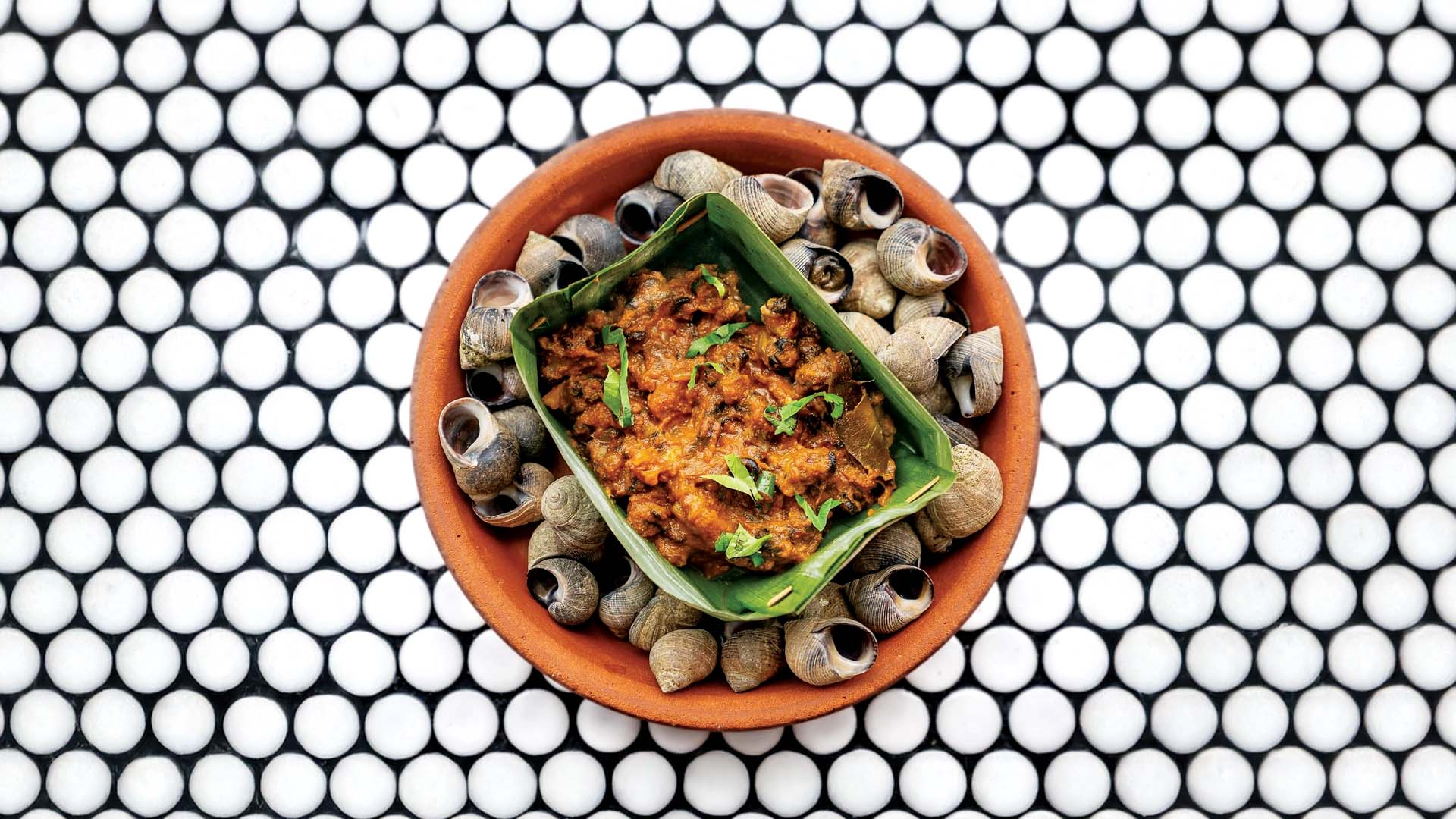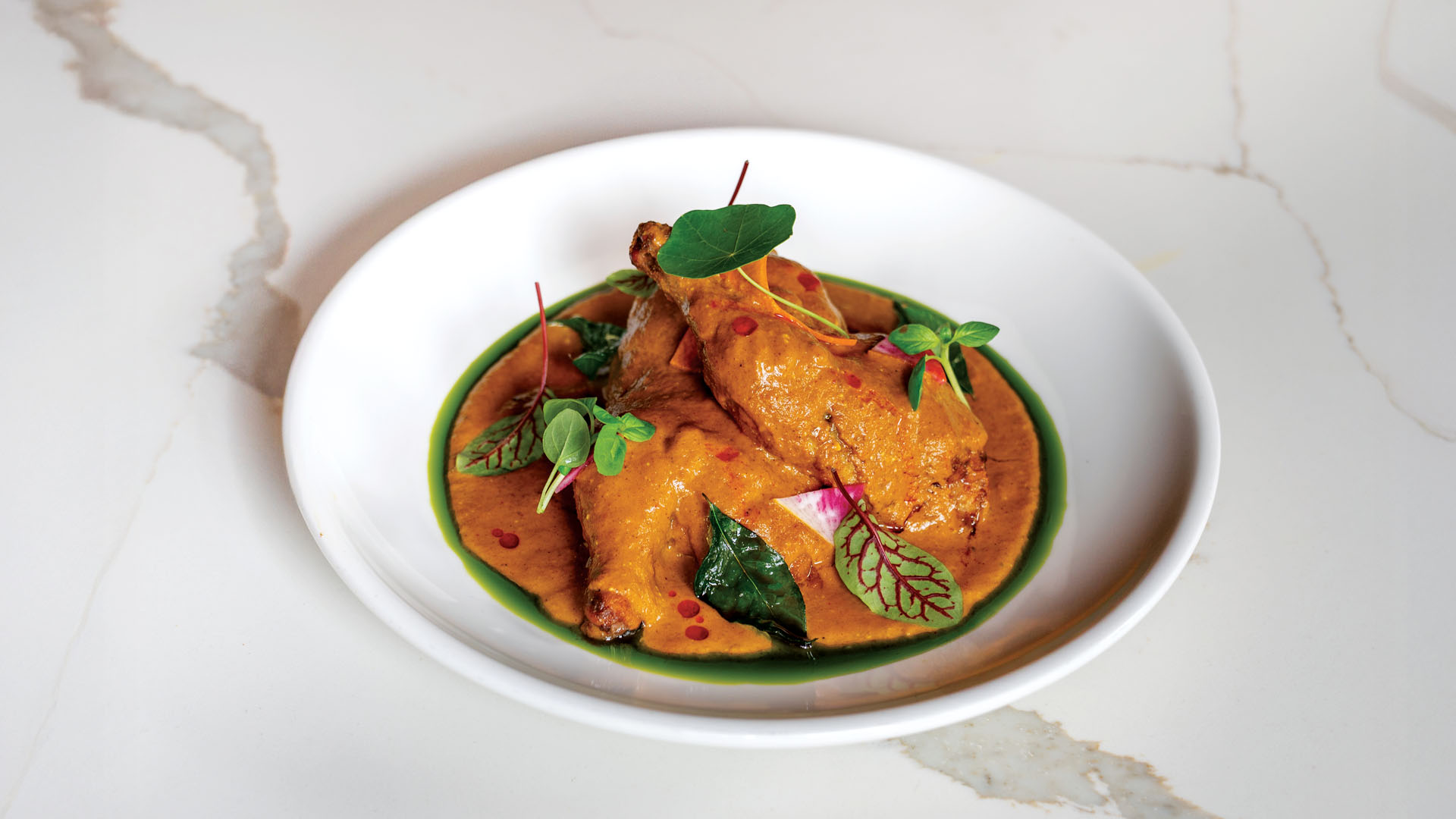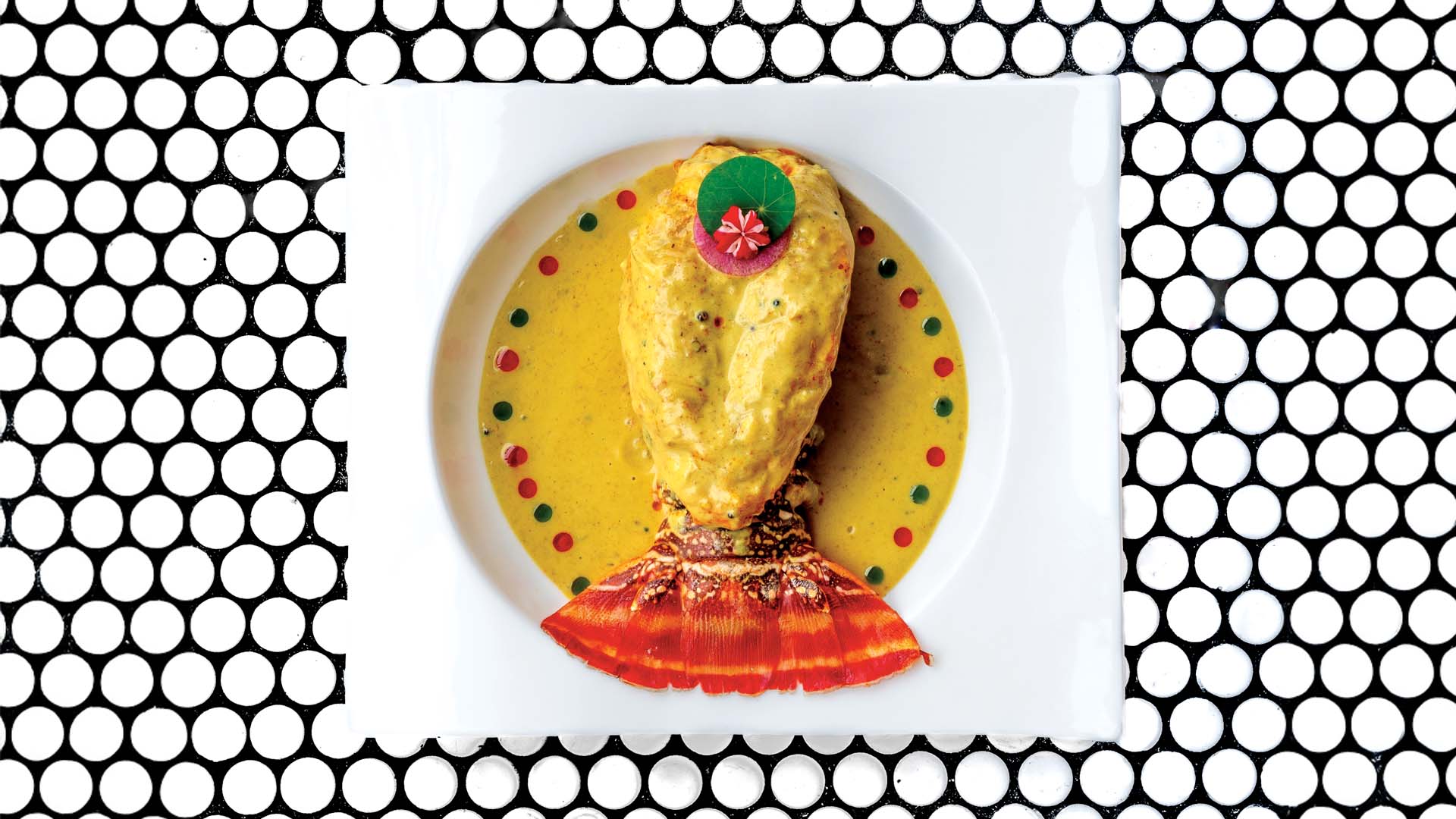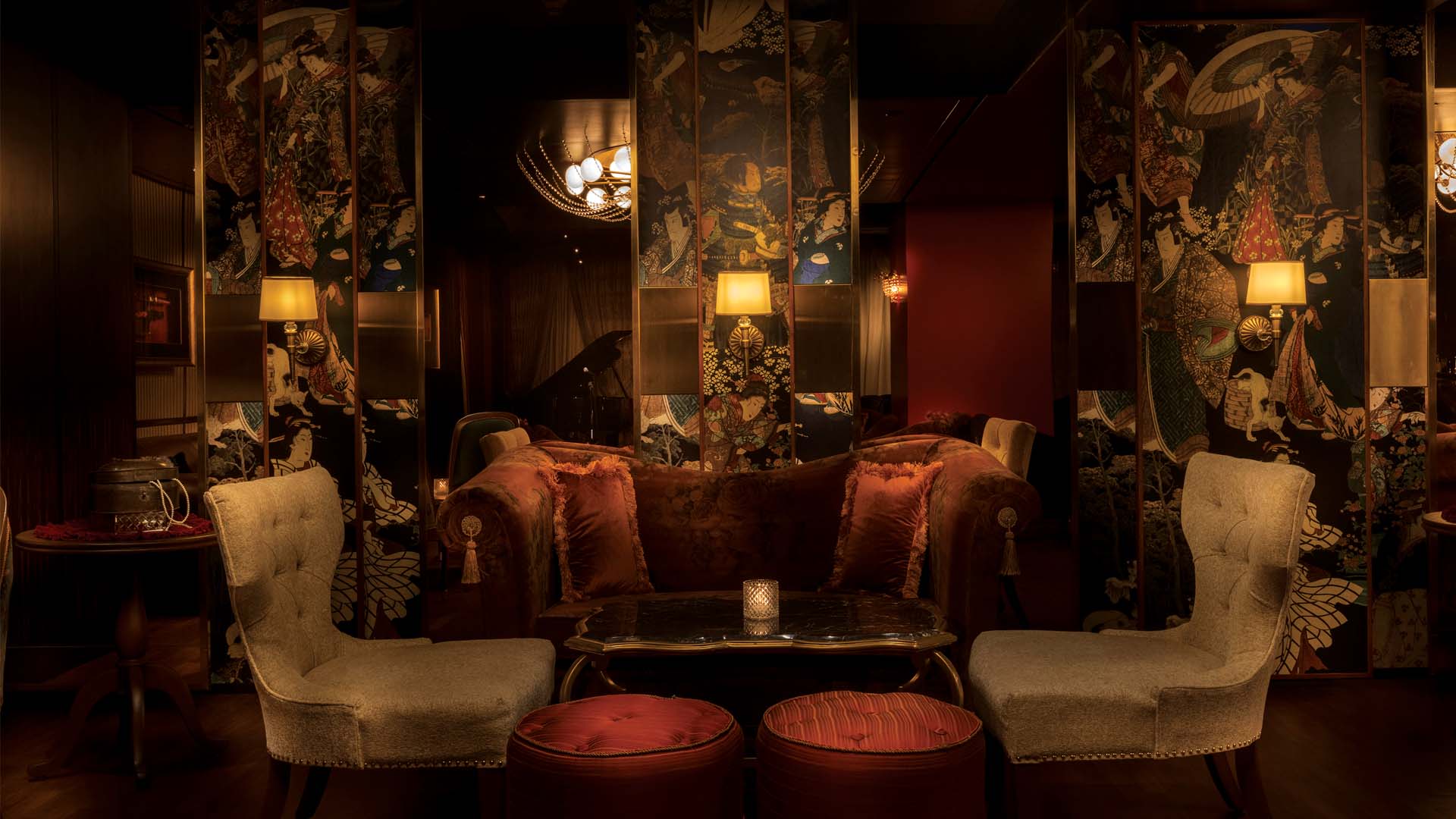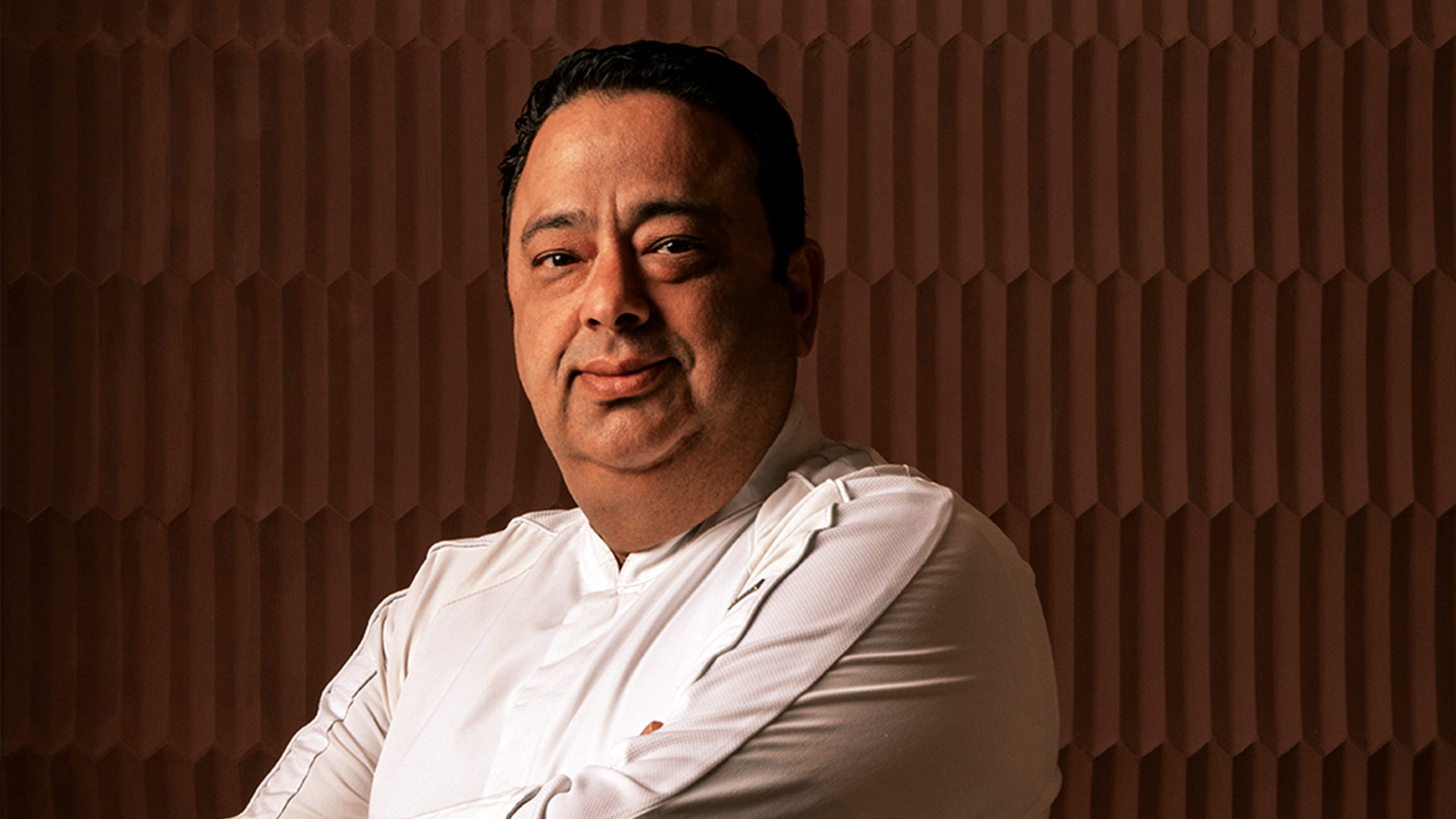Southern Soul, Global Spotlight
Semma, Chef Vijay Kumar’s unapologetically South Indian restaurant in NYC, wins the prestigious James Beard Award and lands the No. 1 spot on The New York Times’ Top 100 list.
By Rachna Virdi
Chef Vijay Kumar has earned a double accolade—his restaurant, Semma, won the prestigious James Beard Award for bringing bold, authentic South Indian (specifically Tamil Nadu) flavours to New York City. Often called the ‘Oscars of the food world,’ this award is among the most coveted in the U.S. Adding to the triumph, Semma has been listed in The New York Times’ Top 100 Restaurants in NYC.
New York City’s Michelin-starred Semma is a bold expression of South Indian cuisine, deeply rooted in Tamil Nadu’s culinary traditions.
Since opening, Semma has drawn global acclaim—named one of Bon Appétit’s Top Ten New Restaurants, Best New Restaurant in America by Esquire, and among The New York Times’ Top 50 Restaurants of the Year. In 2025, it reached a new pinnacle, claiming the number one spot on The New York Times’ Top 100 Restaurants, as chosen by the publication’s interim critics.
Chef Kumar is still beaming from the recognition. “Personally, it’s thrilling to see the food I grew up with celebrated like this. It’s not just an honour for me—it’s for my family, and for the place we come from,” he shares. “Professionally, it’s a powerful reminder that we don’t need to apologise for who we are. This recognition proves there’s strength in authenticity—and that our stories belong on the world’s main stage.”
Semma has undeniably redefined global perceptions of South Indian cuisine. Reflecting on his vision, chef Kumar adds, “My goal was simple—to cook the food I know, without compromise. I wanted Semma to feel like a home kitchen—bold in flavour and rich in soul. I didn’t know how it would be received, but I knew I couldn’t do it any other way. To see it celebrated in New York, one of the world’s most competitive dining cities, tells me people are ready for real food and real stories. It’s incredibly validating.”
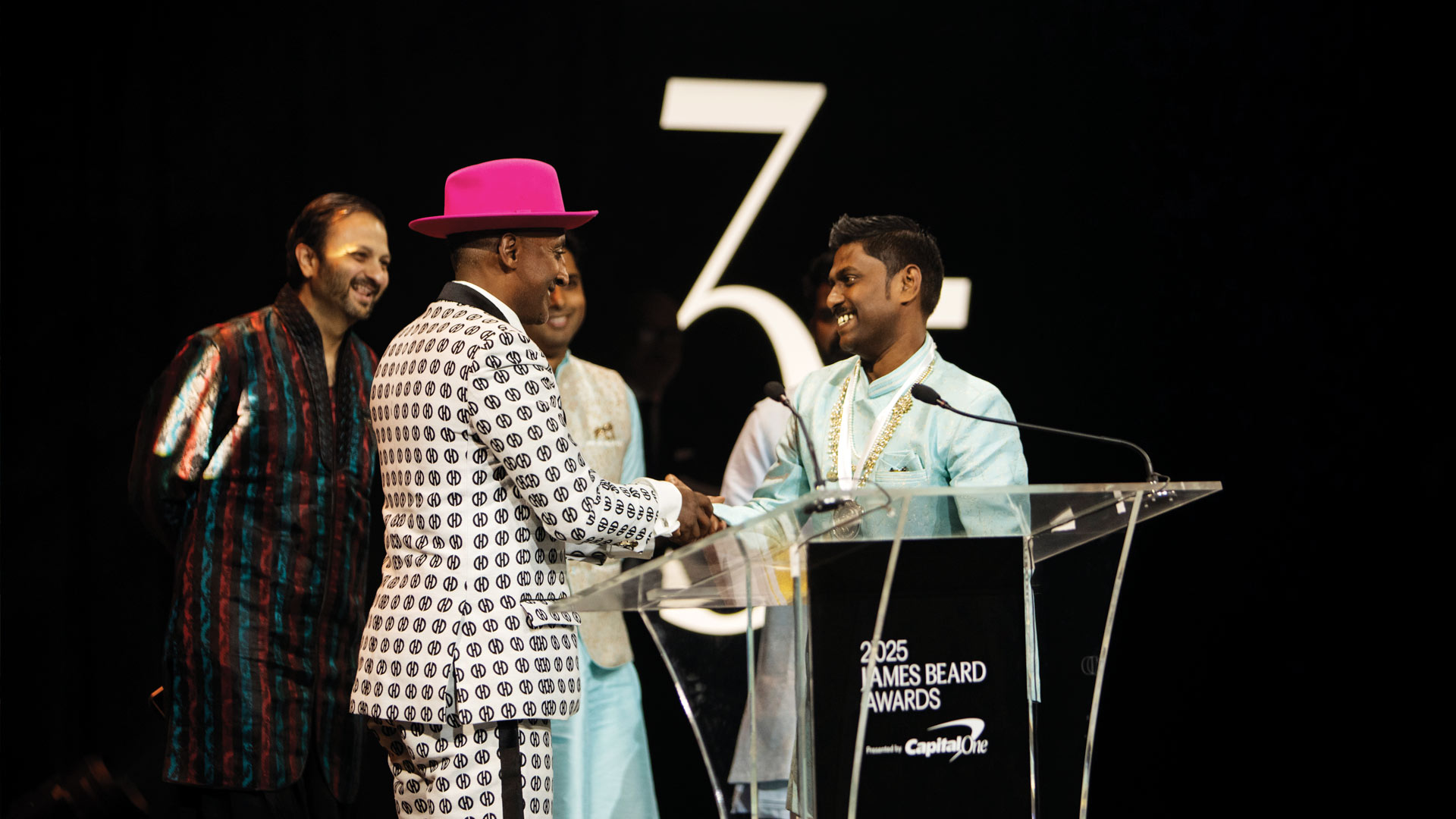
Chef Vijay Kumar receiving the 2025 James Beard award for his ground-breaking work at Semma, which elevates authentic Tamil cuisine.
Regional Indian cuisine makes history
What earned Semma these accolades wasn’t fine-dining theatrics—it was the power of deeply rooted regional cooking. Chef Kumar admits he never imagined that the rural South Indian food he grew up with—unapologetically authentic—would top one of the world’s most influential restaurant rankings.
“I really never imagined food from Tamil Nadu—cooked over fire, traditionally eaten by hand, food from the earth—would sit at the top of a list like this,” he reflects. “For so long, South Indian cuisine was overlooked. But this moment proves our food, in its purest form, belongs on the main stage. That’s what makes this so powerful.”
Semma’s menu draws directly from Tamil Nadu’s villages—soulful, bold, and often unfamiliar to many American diners. “It’s who I am. It’s what I know best,” says Kumar. “These are dishes made by my mother and grandmother—women who cooked with instinct, not recipes. That’s the food that means the most to me. And I knew I had to show the world that rural Tamil food, with all its depth and nuance, belongs at the table.”
Among the highlights are Kudal Varuval (goat intestines in red chilli masala) and Chettinadu Maan (venison with star anise and black stone flower). Semma’s authenticity rests on hyper-regional ingredients like kalpaasi (black stone flower) and Marathi moggu (a caper-like spice), difficult to source in the U.S. Chef Kumar rejects “fancy” additions like caviar or truffles, insisting on cooking for his community first. Dishes like Mulaikattiya Thaniyam (sprouted moong) reflect the simplicity and nutrition of his mother’s cooking.
There’s something undeniably powerful about a Tamil Nadu village-inspired menu being named the best in New York. For chef Kumar, the moment signals change. “It shifts everything. For decades, Indian food was seen through a narrow lens. But India is vast, and every region tells a different story. For a Tamil Nadu village-style menu to top the charts in New York sends a clear message—regional Indian cuisine is exceptional, and it’s time the world took notice.”
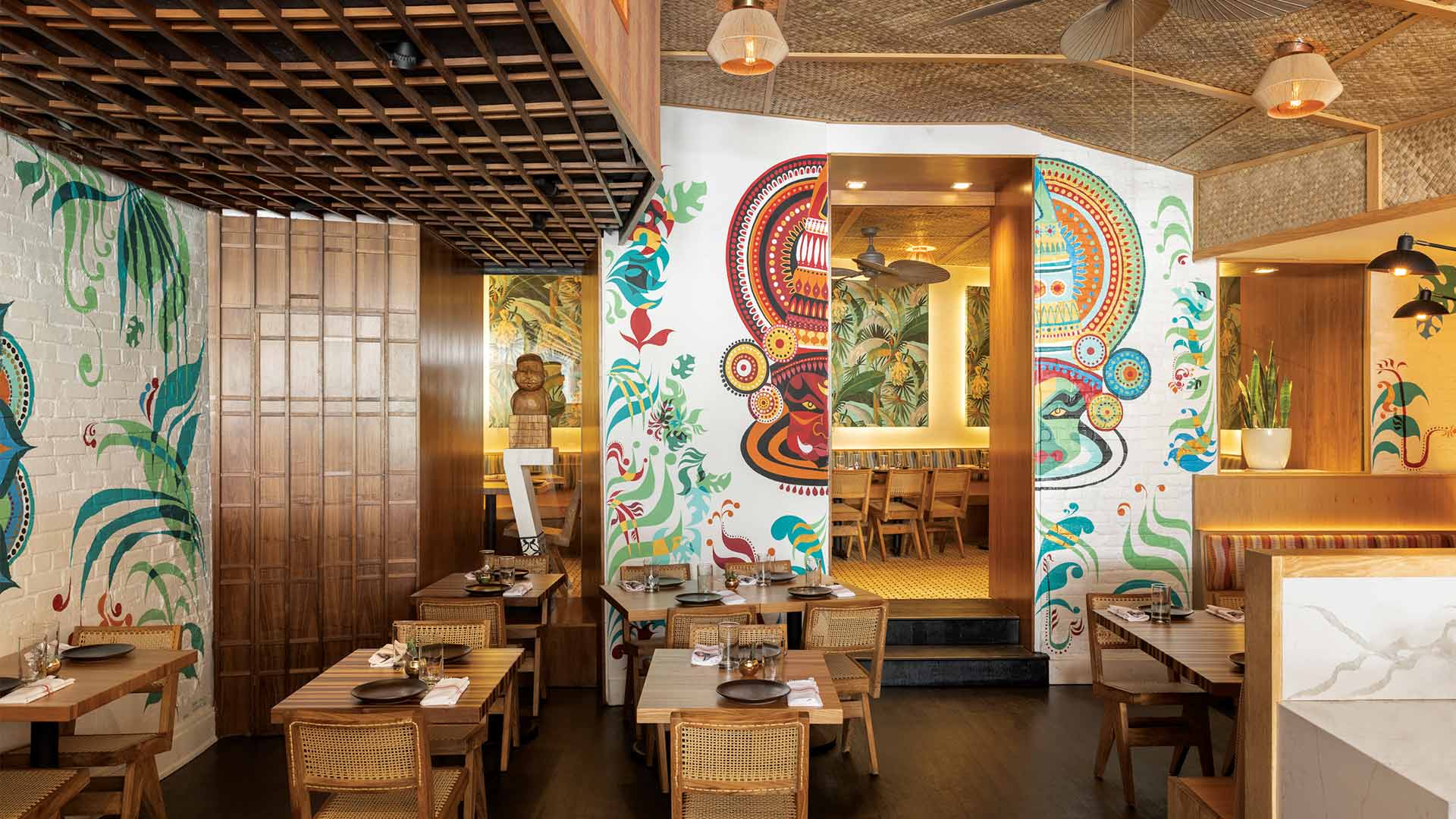
Chef Vijay Kumar wanted Semma to feel like a home kitchen, bold in flavours and rich in soul.
From India to New York
Raised on his family’s farm near Madurai, chef Kumar grew up helping his mother and grandmother with farming and cooking. Though he aspired to become an engineer, financial constraints led him to pursue catering at the State Institute of Hotel Management in Trichy—an unexpected shift that began his culinary career.
His mother and grandmother remain his greatest influences. Dishes like Gunpowder Dosa (served with a 50-ingredient sambar) and Dindigul Goat Biryani (made with seeraga samba rice) carry their legacy of transforming humble ingredients into masterpieces.
After graduating, Kumar trained at The Oberoi Hotels and later worked as a supervisor at The Taj Hotels. His global journey included years aboard cruise ships, where he refined his knife work, presentation, and creative use of fresh produce.
In the U.S., he joined the opening team of Dosa on Fillmore in San Francisco, which earned a Michelin Bib Gourmand. Within two years, he rose to lead chef before moving to Rasa in 2014. Under his leadership, Rasa earned a Michelin star for almost four consecutive years (2016–2019).
In 2021, chef Kumar made a bold move to New York, teaming up with restaurateurs Roni Mazumdar and Chef Chintan Pandya of Unapologetic Foods. In October that year, they opened Semma, dedicated to heritage South Indian cuisine. Just one year later, it was awarded a Michelin star, at the time the only Indian restaurant in the U.S. with that distinction—marking a breakthrough moment for regional Indian food on the global stage.
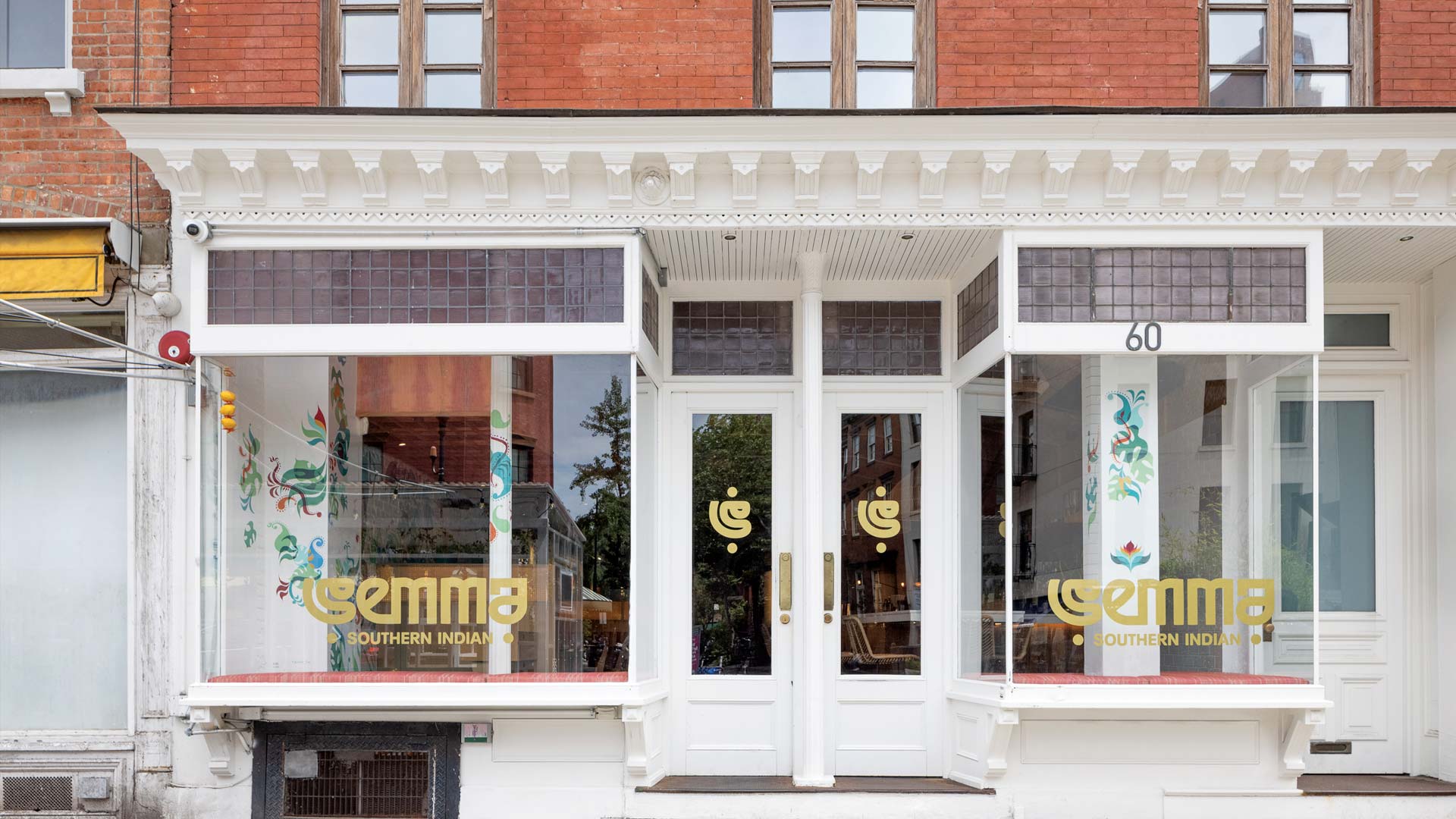
The word Semma on the restaurant facade is written in a bold, clean typeface, serving both as an identifier and a statement of its Tamil roots.
One of the most meaningful responses is when someone says the food reminds them of home—even if they’re not South Indian. These dishes carry a warmth and depth that resonates universally. I’ve had guests in tears because a single flavour unlocked a memory. Others have said, ‘I’ve never tasted anything like this,’ as they finish every last bite.
Chef Vijay Kumar
Co-founder, Semma

The power of honest cooking
Kumar’s food consistently evokes emotional responses, particularly from diners experiencing authentic South Indian cuisine for the first time. “One of the most meaningful responses,” he shares, “is when someone says the food reminds them of home—even if they’re not South Indian. These dishes carry a warmth and depth that resonates universally. I’ve had guests in tears because a single flavour unlocked a memory. Others have said, ‘I’ve never tasted anything like this,’ as they finish every last bite.”
For Kumar, that’s the power of honest cooking—it transcends cultures, creating connections without explanation. He sees Semma’s success as part of something larger. “It signals a shift, a movement. Semma proves the world is ready to embrace Indian food in its full spectrum—especially the regional, bold, and unapologetic parts. It tells young chefs they don’t need to fit someone else’s mould of excellence. They can lead with who they are—and be celebrated for it.”
Semma has set a new benchmark for Indian cuisine globally. As for what’s next, Kumar says, “I want to go even deeper into the South Indian pantry—there are still so many stories left untold. I’m pushing myself to explore new ways to express my heritage. Indian hospitality is entering a new era—an era defined by identity. Diners are ready to experience Indian cuisine in all its unapologetic depth. That’s the future I believe in.”
Culinary vision
Chef Vijay Kumar’s culinary journey is rooted in his childhood in Natham, a small village near Madurai, Tamil Nadu. Growing up without electricity or local transport, he foraged for snails in paddy fields and hunted with his grandfather—experiences that later inspired dishes like Nathai Pirattal (snail curry) on Semma’s menu. Once dismissed in India as “poor people’s food,” these dishes became fine-dining sensations in New York under chef Kumar’s vision.
The name Semma comes from Tamil slang meaning ‘super’ or ‘awesome,’ capturing the restaurant’s bold, unapologetic celebration of South Indian flavours. It also links to the Tamil word 'semmaiyana', associated with ripeness and the warrior god Murugan, symbolising vibrancy and excellence.
Chef Kumar believes micro-regional cooking and sustainable practices, like using clay pots and banana leaves, will become global trends. He sees Semma as part of a larger movement toward ancestral cuisines that don’t compromise for taste.



























